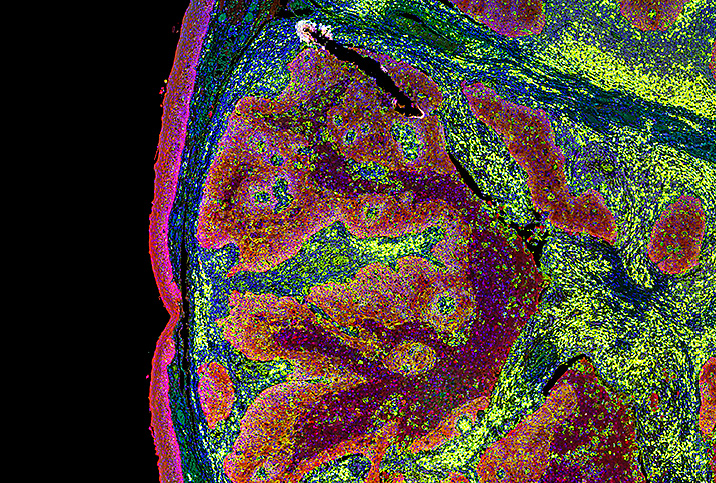Forever Chemicals Linked to Testicular Cancer in Military Personnel

Key Points
- So-called forever chemicals are ubiquitous and have been linked to several serious health conditions.
- Firefighters are more likely to develop testicular cancer than men in most other professions, according to research.
- A new study indicates Air Force firefighters have a higher risk of testicular cancer due to forever chemical exposure.
New federal research demonstrates a direct link between "forever chemicals" and testicular cancer in United States Air Force personnel.
Previous studies have shown firefighters are more likely to develop testicular cancer than men in other occupations. Researchers have suggested that per- and polyfluoroalkyl substances (PFAS)—aka forever chemicals—in certain fire-extinguishing foams may be a contributing factor.
The latest study is the first to confirm a direct association between perfluorooctanesulfonic acid (PFOS), a type of PFAS, and military service members' risk.
What did the study find?
Researchers at the National Cancer Institute (NCI) and Uniformed Services University of the Health Sciences evaluated blood samples from more than 1,000 Air Force personnel provided between 1988 and 2017.
The researchers discovered service members who were firefighters had significantly higher levels of PFAS in their blood compared to those in other occupations. They found airmen with testicular cancer had more PFAS in their blood than those without in the 2023 study published in Environmental Health Perspectives.
Additionally, researchers discovered a weaker association between testicular cancer incidence and non-firefighter airmen who lived on installations with high levels of forever chemicals in tap water.
"This is, to our knowledge, the first study to investigate PFAS blood levels among service members and to investigate PFAS associations with a type of cancer in this population," said Mark Purdue, Ph.D., a study co-author and senior investigator at NCI.
The work is a "valuable contribution to the literature" on the PFAS-cancer connection, said Kyle Steenland, a professor at Emory University's Rollins School of Public Health, in an accompanying commentary.
Recommended
- Watch Out for These Very Rare Symptoms of Testicular Cancer: Uncommon signs of testicular cancer can point to other health problems, so don't ignore them.
- My Ballsy Journey: Surviving Testicular Cancer: A health scare leads a teacher to become an advocate for men's health.
- Why Is Testicular Cancer a Young Man's Disease?: The average age of a testicular cancer diagnosis is just 33, but the reasons are mostly theoretical.
What are PFAS?
Scientists have discovered forever chemicals—they're called that because they don't break down and can remain in the body or environment indefinitely—in drinking water, clothing, furniture, prepackaged food and various other goods.
Roughly 97 percent of people in the U.S. have such chemicals in their bloodstream, according to the National Institute of Environmental Health Sciences (NIH).
Previous research has indicated workers and communities exposed to forever chemicals in drinking water are more likely to develop testicular cancer, Purdue said.
There's also evidence of associations between PFAS and other health conditions, including kidney cancer, abnormal liver enzymes, reproductive health issues and decreased immune response, according to the Agency for Toxic Substances and Disease Registry (ATSDR).
What does this study on forever chemicals mean for military personnel?
Purdue said he and his colleagues decided to conduct the study on military personnel because many bases are known to have forever chemicals in tap water stemming from the use of specialized PFAS-containing firefighting foams.
These foams, known as aqueous film-forming foam (AFF), can put out scorching, petroleum-based fires such as those caused by aircraft crashes, according to the Kaiser Family Foundation (KFF).
After a 1974 report showing the fatal effect of PFAS-containing AFFs on fish and a 1983 Air Force technical report indicating it was lethal to mice, the Department of Defense began gradually phasing it out, per KFF.
Newer AFFs also contain PFAS, but these are thought to be less toxic. By congressional order, the military has agreed to stop using PFOS-containing AFF altogether by October 2024.
Congress has also pushed the Department of Defense to clean up bases to reduce forever chemicals in tap water.
"I want to emphasize that more research is needed to assess whether our results can be confirmed," Purdue said. "Military veterans who are concerned about possible exposure to PFAS should talk to their physician."
For those who have been diagnosed with testicular cancer, treatment is available. The five-year relative survival rate for stage 1 testicular cancer is 99 percent, according to the Moffitt Cancer Center.
Even when the tumor has spread to nearby tissues and lymph nodes, the five-year relative survival rate is 96 percent, per the organization.
The bottom line
Testicular cancer is a highly treatable condition; nearly everyone survives when it is detected early. Along with your occupation and environment, other factors can raise your risk, such as a family history of testicular cancer, having an undescended testicle or being HIV positive.
If you're concerned you may have an increased risk, speak with your doctor.
"I hope our findings stimulate more research to better understand PFAS exposures among military personnel—both active duty and veterans—and their possible health effects in this population," Purdue said.


















